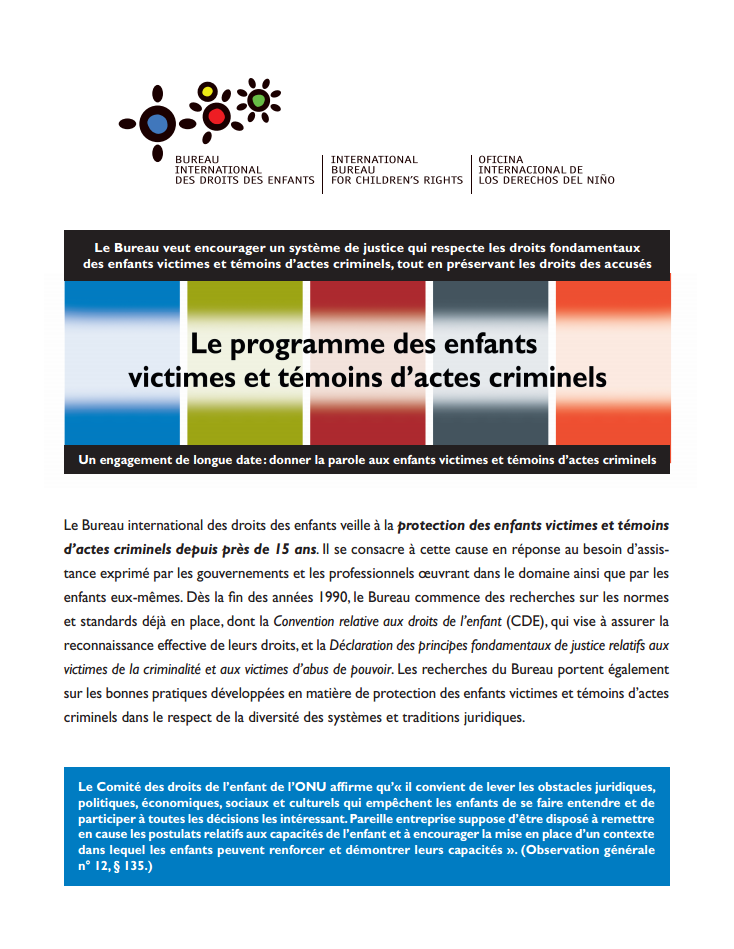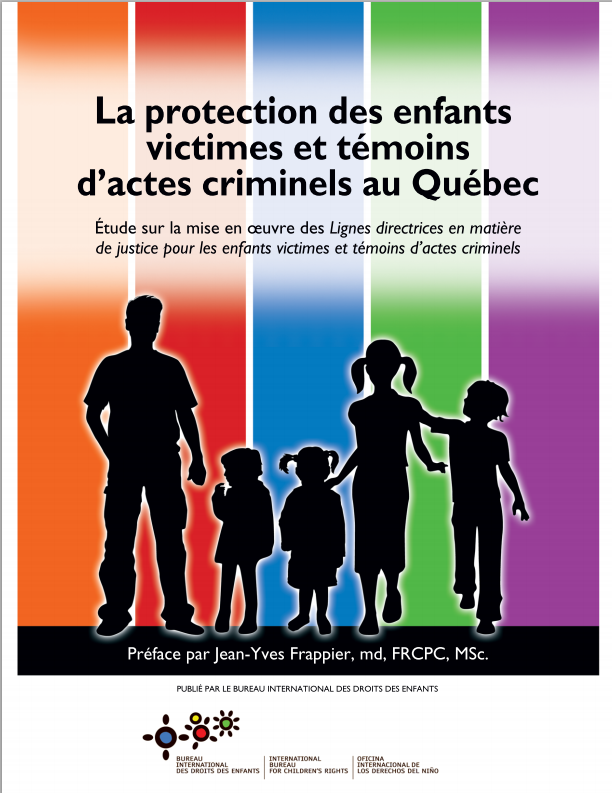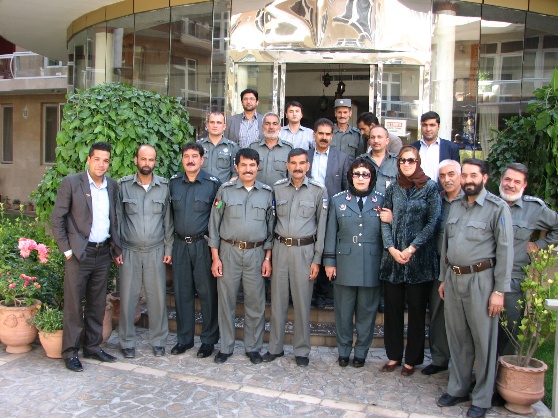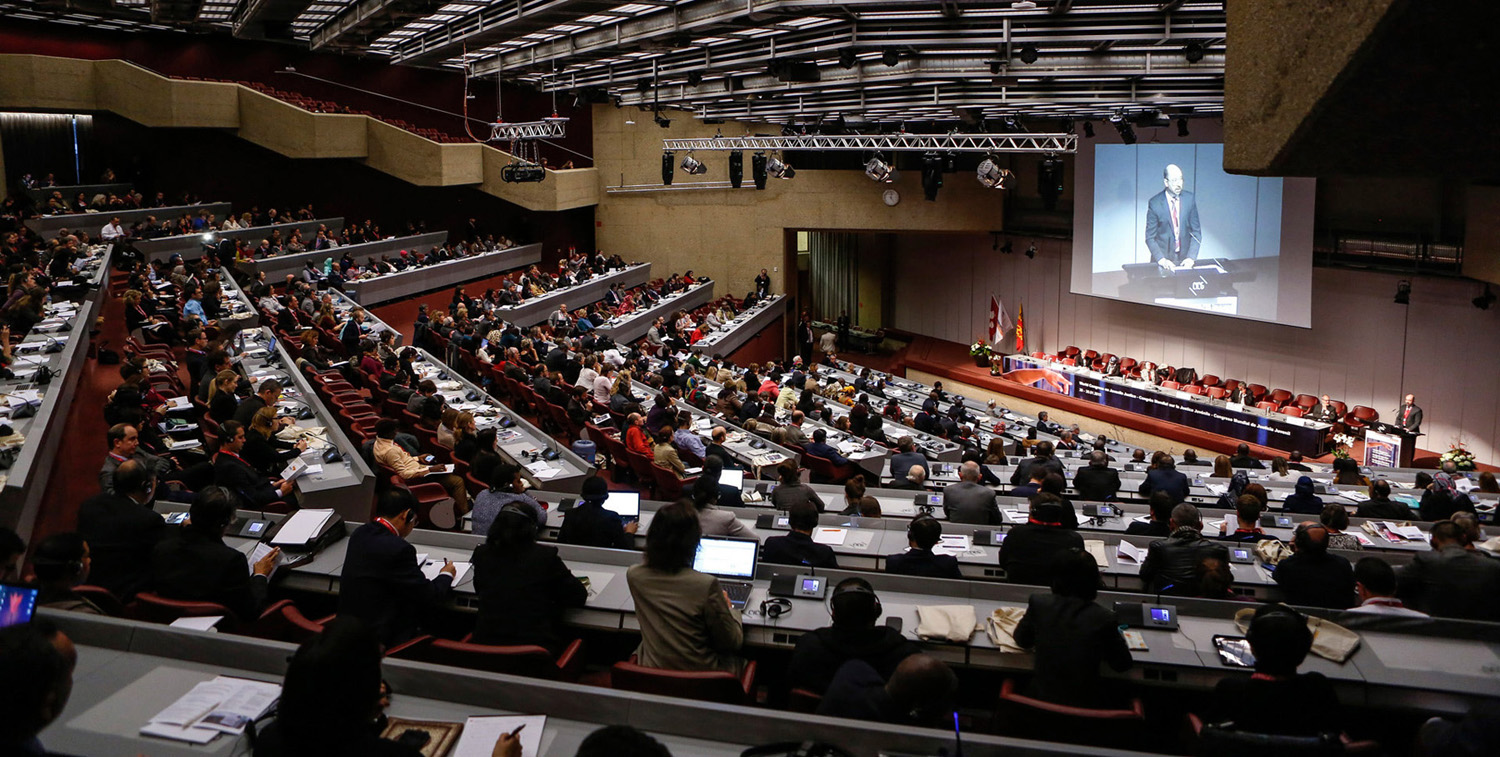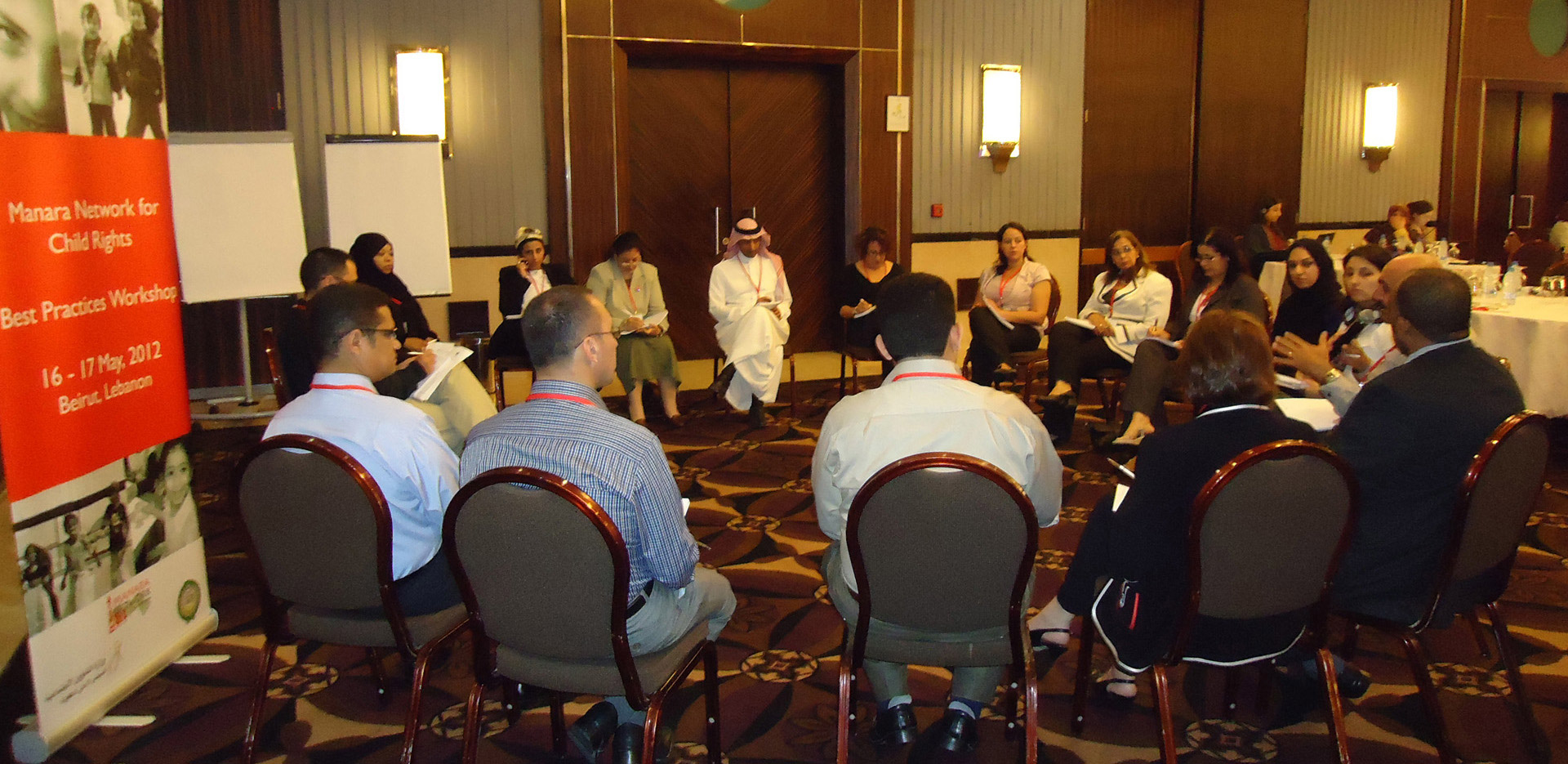Study on the Legal Trajectory of Child Victims and Witnesses of Crime in Quebec
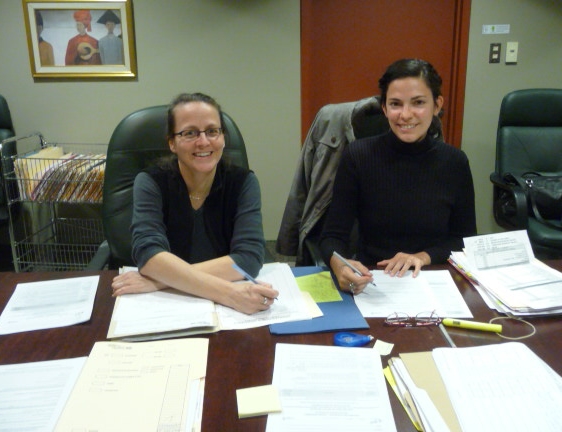
Caroline Gendreau, Project Manager, and her assistant Vanesa Badino
Giving a voice to child victims and witnesses of crime in Quebec.
Project duration : 2012 - 2016
This research programme is the second phase of a larger project to document the way the Guidelines on Justice Involving Child Victims and Witnesses of Crimes are enforced in Canada, and Quebec in particular. This first component led to the publication of an evaluation report (lien rapport) in 2011 examining the best practices adopted by justice professionals, as well as the legislative changes essential to a greater respect for children’s rights. However, since this study was carried out from an exclusively adult perspective, we felt it was necessary to give boys and girls under 18 the chance to speak directly by compiling the experiences and opinions of child victims and witnesses of crime who have come into contact with the justice system in Quebec. This project was made possible thanks to funding provided in 2012 by the Quebec Ministry of Justice’s Crime Victims Assistance Office and to the support of the association Plaidoyer-Victimes.
Our goals :
The purpose of this research is to obtain data on the strengths and weaknesses of the criminal justice system, as perceived by the children who have experienced it first-hand as victims or witnesses of crimes. During meetings with young victims and young witnesses of crime, the IBCR gave them the opportunity to express their opinion on their experience with the justice system. By doing so, these youths participated in research on the effective respect of their rights. By taking these opinions seriously, the IBCR is committed to developing recommendations based on their accounts.
The initial preparatory phase consisted of a review of existing studies related to child victims and witnesses and the organization of a series of meetings with justice professionals and various stakeholders specialising in the field. This work allowed us to identify recurring problems in the judicial process, such as children’s reluctance to report crimes, the experience of confusion about what is happening to them, their fear of confronting the accused, the anxiety caused by long procedural delays, the fear of not being believed, and the need to understand and be informed.
Starting in 2013, and following that first series of initiatives, the IBCR began identifying young participants and prepared an interview protocol, developing an Interview Guide under the supervision of experts. The interviews that were finalised in 2015 led to a content analysis to inform a 2016 research report.
- Intervention locations : Québec
- Project duration: 2012-2016
- Partners :
- Quebec Ministry of Justice’s Crime Victims Assistance Office
- Quebec association Plaidoyer-Victimes
- Highlights:
- Fields of activity and expertise :
- Applied research
- Children and the justice system






